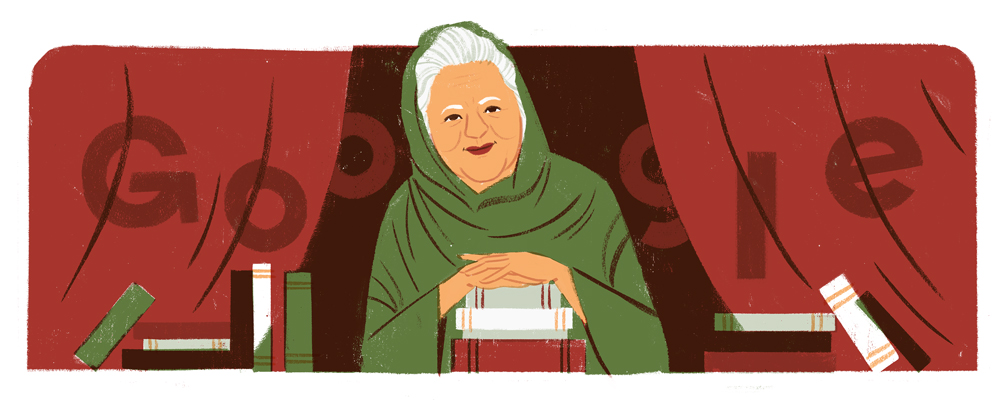The fifth death anniversary of renowned Urdu novelist and play writer ‘Bano Qudsia’ was observed today (Friday).
Her novel ‘Raja Gidh’ is one of best novels of Urdu. Aapa also wrote for television and stage in both Urdu and Punjabi languages.
Bano Qudsia: Classical writer and Pride of Pakistan
Bano Qudsia was born in 28 November 1928 in Firozpur, British India, as Qudsia Chattha. People mostly called her Bano Aapa. Bano Qudsia was a Pakistani novelist, playwright and spiritualist. She wrote Urdu literature and produced novels, dramas plays and wrote mind blowing short stories. She wrote Raja Gidh, a famous Urdu novel. Qudsia also wrote for Pakistan TV and Stage Dramas in both Urdu and Punjabi languages. Critics have called er play Aadhi Baat “a classic play”. Bano Qudsia died in Lahore on 4 February 2017.
She migrated to Lahore with her family after the partition of India and had begun writing short stories while studying in class 5.
Raja Gidh (The King Vulture): A Classic by Bano Qudsia
Bano Qudsia wrote Raja Gidh in 80s. It is a modern Urdu classic. Among her more prominent writings are Aatish-i-zer-i-paa, Aik Din, Asay Pasay, Chahar Chaman, Chhotaa Sheher Baray Log, Footpath ki Ghaas, Haasil Ghaat and Hawa Kay Naam.
Moreover, The most well known plays she wrote include Tamasil, Hawa ke Naam, Seharay and Khaleej.

Her critically acclaimed play Aadhi Baat was about a retired headmaster. It was performed at a 3-day event in May 2010 in Islamabad. The Pakistan National Council of the Arts organised this event.
Moreover, Qudsia published novel Haasil Ghaat in 2005. She was noted for its diction but also criticized then for usages of English slangs than her usual traditional Urdu narrative. The language however became popular amongst other writers in future.
Furthermore, In 1983, the Government of Pakistan awarded the Sitara-i-Imtiaz (Star of Excellence) to Bano Qudsia. The Pakistani government awarded her the Hilal-i-Imtiaz (Crescent of Excellence) for her services in literature in 2010. In 2012, the Pakistan Academy of Letters (PAL) awarded Qudsia the Kamal-e-Fun Award, which is a lifetime achievement award. The GCU’s Old Ravians Union (GCU-ORU) at its annual reunion conferred on her a lifetime achievement award In 2016. The same year, the Pakistan Life Care Foundation (PLCF) also awarded the lifetime achievement award to Qudsia.
Biography of Ashfaq Ahmad, Husband of Bano Qudsia
Ashfaq Ahmed’s autobiography Baba Saheba was incomplete at the time of his death in September 2004. Qudsia completed her husband’s biography. She also released its second part as Rah-i-Rawaan. The difference in both of their writing styles is pretty evident in these 2 books. The first half is more “provoking, lucid and utterly spellbinding”, while the 2nd half takes the feeling of grief.
Moreover, Qudsia’s published her novel Raah-e-Rawaan in 2011. In this novel, she took an analytical look at Ashfaq Ahmed’s philosophical thinking. And how it relates to certain aspects of life itself. Qudsia had the highest regards for her husband and she has placed Ashfaq Ahmed on a very high pedestal.
However she does not even claim to understand the man she lived with for more than five decades. So, an attempt at writing the biography of Ashfaq Ahmed took her beyond that ‘one person’— and she started to write about his ancestry, the family including his grandfather, father, uncles, brothers, sisters and their children so as to fully understand the enigma that was Ashfaq Ahmed.




